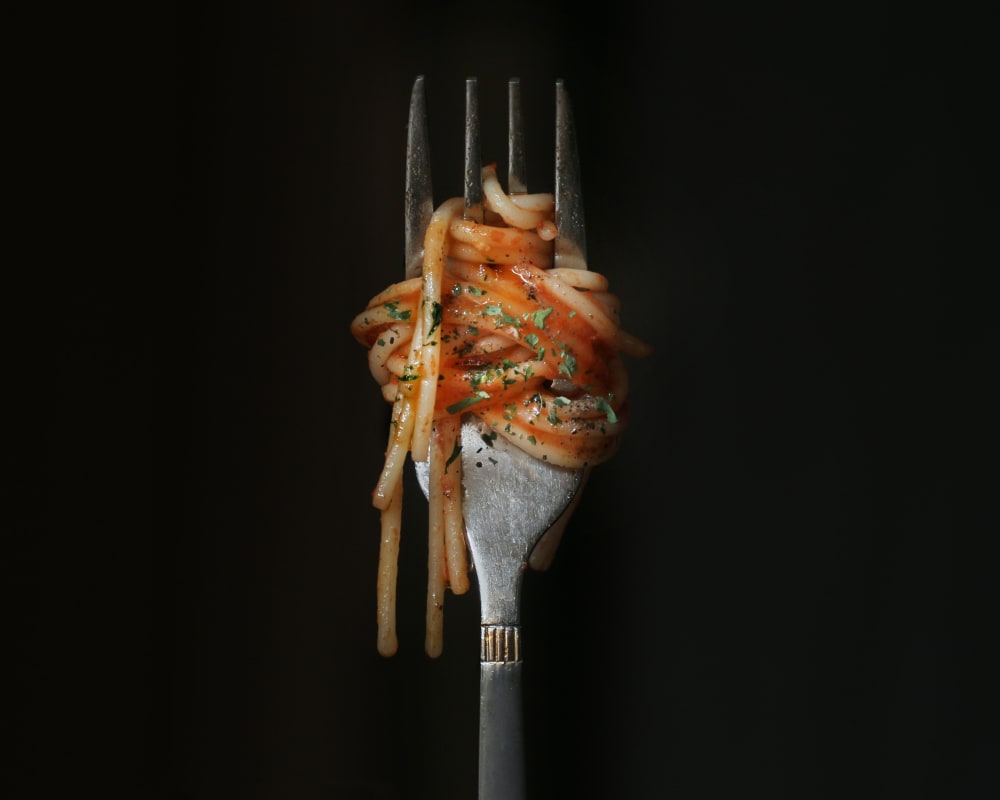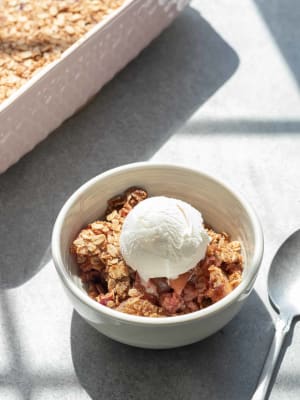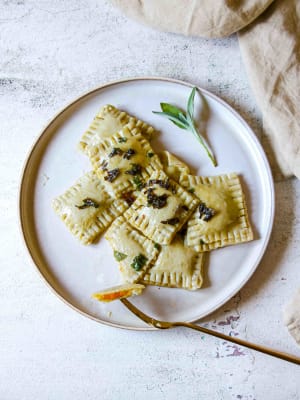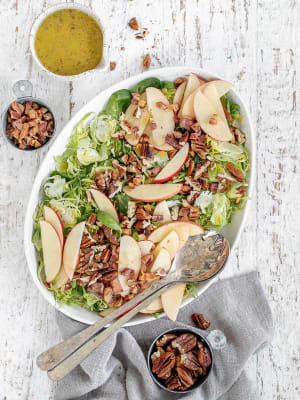Navigating Food Intolerances While Remaining Anti-Diet

Navigating Food Intolerances While Remaining Anti-Diet
Discovering you have a food allergy or intolerance can feel overwhelming at first, especially if that food is a staple in your diet. Luckily, we're here to help!
What is Anti-Diet?
Being anti-diet essentially means you’re against diet culture. Diet culture is more than just being on a diet. It represents a pursuit of thinness and weight loss to fit a stereotypical view of health. It equates thinness with wellness. It elevates individuals with thin or “acceptable” bodies while oppressing those who don’t fit these narrow constraints. It can be particularly dangerous to many people, especially women, people of colour, trans folks, and people with disabilities. Diet culture is all around us and is perpetuated by the media, corporations and social media.
If you are currently practicing intuitive eating or living an anti-diet lifestyle, it can be frustrating when you learn you have to avoid certain foods or entire food groups. You can remain anti-diet and engage in intuitive eating while limiting or avoiding certain foods. It’s all in the approach
Food Intolerance is a Very Real Concern
Food allergies and sensitivities are genuine concerns. For example, individuals that have celiac disease must avoid gluten. Gluten triggers an immune response similar to a pathogen like a virus or bacteria. Gluten must be avoided entirely to prevent inflammation, altered G.I function, nutritional deficiencies, and much more. This is much different than someone who has a gluten sensitivity. An individual with a gluten sensitivity might need to limit their gluten intake to avoid symptoms like bloating, constipation and diarrhea. Whether you have a food allergy or intolerance, food is meant to be enjoyed and should not be a point of frustration.
When Food Intolerances Become Trendy
Diet culture is insidious in its ability to mask itself under health and wellness. Many of the diets currently trending at their roots are a means to control food intake and weight. For example, many individuals consider gluten to be “bad” or unhealthy. Unless someone is experiencing a food intolerance or allergy to gluten, it doesn’t need to be removed from the diet. The perception that gluten is unhealthy has led to an explosion of gluten-free products. While gluten-free products are great for those with celiac disease, they are not necessarily health-promoting. Many gluten-free products contain preservatives, fillers, and binding agents that might otherwise harm digestion. The same could be true for dairy. While many individuals experience a lactose intolerance, many dairy-free products contain other ingredients that might not be beneficial for one’s health. If you notice an adverse reaction to a food, it is acceptable to limit or avoid it. Omitting food simply because a diet tells you to can create unnecessary rules and restrictions. This can further complicate someone’s relationship to food and their body.
How Stress Impacts Your Body
Stress is another issue that can be exacerbated when creating food rules based on perceived intolerance. When your body is in a state of stress, it can be tough to digest food properly. Optimal digestion takes place when an individual is calm and relaxed. If you often find yourself stressed about eating, you might notice digestive issues getting worse, not better. I found that no matter what diet or food rules I followed, my digestion was struggling. It turns out that the issue wasn’t with the food; it was with my relationship to it and the stress I was putting on myself.
Three Practical Tips
The following are suggestions to help you navigate food allergies and intolerances while still practising an anti-diet mentality:
- Know that this isn’t forever: simply realizing that your food intolerances may not last forever is a helpful mindset shift to make. Yes, a specific food item may bother you right now, but it won’t always. If you’re able to enjoy it again in the future, it’s probably a good idea to keep an open mind about it rather than demonize it.
- Try to avoid using negative language around food: this ties into the above point. Rather than saying the food itself is “bad,” try and associate the food with how it makes you feel or the reaction it causes. This simple change in wording can make a big difference in how you look at that food and make it easier if and when you decide to reintroduce it later.
- Have fun in the kitchen: if you enjoy cooking and feel lost in what to make, try searching for allergen-friendly recipes. You can find so much inspiration online or in an allergen-friendly cookbook. Trying new ingredients doesn’t have to be intimidating and can be a lot of fun.
Overall, finding out you have developed a food intolerance doesn’t have to feel overwhelming. Simply changing your mindset around that food can make a big difference. You can still find peace on your plate no matter what is or isn’t on it.







